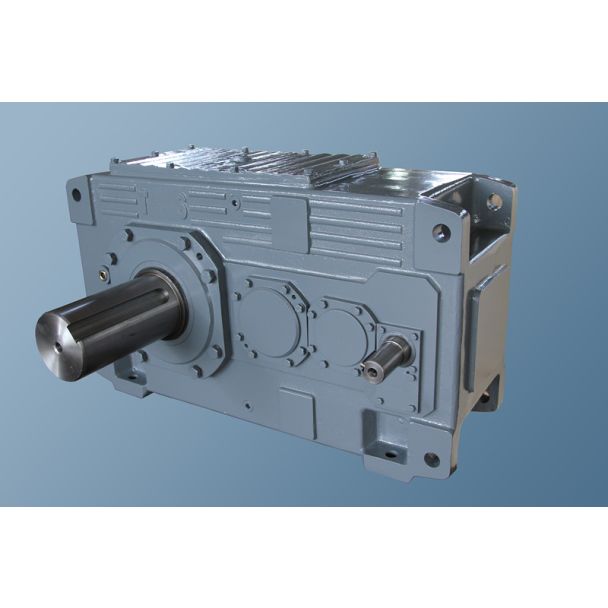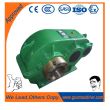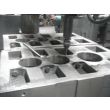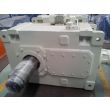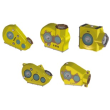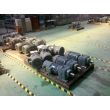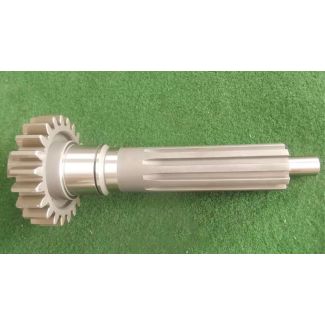Bevel-helical gear box B4 power in W Installation space in mm Size heating B4FH-12-C
In stock
SKU
B4FH-12-C
$37,500.00
Flender/Flender Gear Units/Bevel-helical gear box B4
wheat crops are either dried in the eld or on cemented oor for 3 days to bring down the moisture content from 2% to 1 2% when threshing operations are carried out. Threshing of immatured or moist grainwould result not
content from 2% to 1 2% when threshing operations are carried out. Threshing of immatured or moist grainwould result not  only in more breakage, but would also require higher impact force forgrain detachment, and cleaning and grain separation from leftovers
only in more breakage, but would also require higher impact force forgrain detachment, and cleaning and grain separation from leftovers  (broken stalks andchaffs) would become difcult, requiring more impact power. An average laborer canthresh 1 kg/ of grain by hand-beating,
(broken stalks andchaffs) would become difcult, requiring more impact power. An average laborer canthresh 1 kg/ of grain by hand-beating,  or 1 kg/ by treading the grain under the feet of animals. In either method, sound grains are separated using winnower operated by human or by power unit or dropping the mix against the medium to high natural wind. Thus, the separation of sound grain and manual bagging require additional labor,making the entire process tedious, time-consuming, and labor-intensive. It thus bringsdown the overall threshing ability of laborer to 1 kg/ in manual threshing and 8 kg/ by treading the grain under the feet of animals. Therefore, traditional methods ofthreshing are considered slow process of grain detachment. Small and marginal farmers of South and Southeast Asia knowingly follow these methods because of capital constraint and limited production of cereal and pulse crops. 3.2 Pedal Threshing Threshers of different designs and capacities are being manufactured by various manufac- turers in all the countries. They are either throw-in or hold-on type. The Japanese-type rotary drum thresher, hold-on type is the rst of its kind developed in Japan for threshing paddy crops. Such thresher is common with small farmers of paddy-growing countries.It is cheap, compact, and simple in construction. It consists of threshing cylinder (4cm in diameter and 4 cm long) with wire loops, driving mechanism, and supportingframe. The rotary motion to the drum is given by crank mechanism from treadle andtwo cast iron gears (8 and 2 teeth) with 1:4-speed gain to achieve cylinder speed between 3 and 3 rpm (6.
or 1 kg/ by treading the grain under the feet of animals. In either method, sound grains are separated using winnower operated by human or by power unit or dropping the mix against the medium to high natural wind. Thus, the separation of sound grain and manual bagging require additional labor,making the entire process tedious, time-consuming, and labor-intensive. It thus bringsdown the overall threshing ability of laborer to 1 kg/ in manual threshing and 8 kg/ by treading the grain under the feet of animals. Therefore, traditional methods ofthreshing are considered slow process of grain detachment. Small and marginal farmers of South and Southeast Asia knowingly follow these methods because of capital constraint and limited production of cereal and pulse crops. 3.2 Pedal Threshing Threshers of different designs and capacities are being manufactured by various manufac- turers in all the countries. They are either throw-in or hold-on type. The Japanese-type rotary drum thresher, hold-on type is the rst of its kind developed in Japan for threshing paddy crops. Such thresher is common with small farmers of paddy-growing countries.It is cheap, compact, and simple in construction. It consists of threshing cylinder (4cm in diameter and 4 cm long) with wire loops, driving mechanism, and supportingframe. The rotary motion to the drum is given by crank mechanism from treadle andtwo cast iron gears (8 and 2 teeth) with 1:4-speed gain to achieve cylinder speed between 3 and 3 rpm (6.| Model Type | Bevel-helical gear box B4 |
|---|---|
| Gear Type | Bevel Helical Gear |
| Weight (kg) | 1750.000000 |
| Ratio Range | 1 : 100…400 |
| Low Speed Output | Flanged shaft |
| Nominal Torque | 78000 Nm |
| Mounting Arrangements | Horizontal mounting position |
| Manufacturer | FLENDER TÜBINGEN GMBH |
| Country of Manufacture | Malaysia |
| Data Sheet & Drawings | Bevel-helical gear box B4 power in W Installation space in mm Size heating B4FH-12-C |
